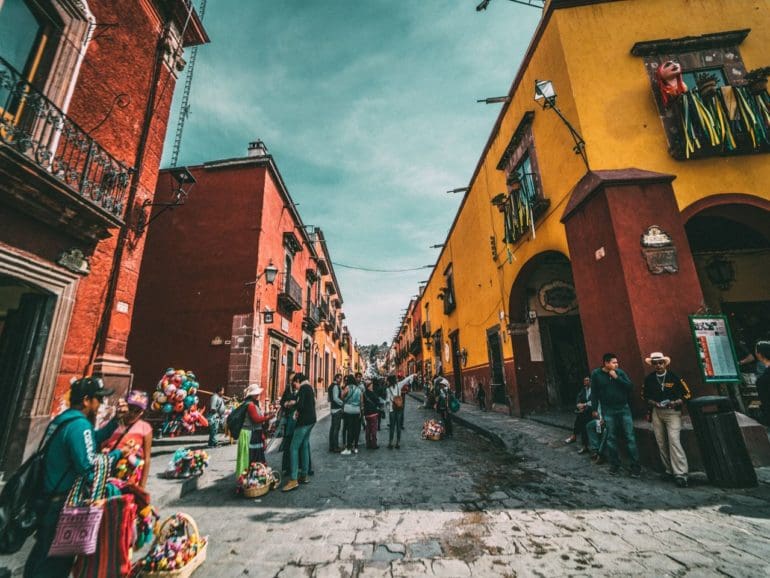Industry leaders call for overhauling its regulation five years since Mexico passed the fintech law.
The overarching goal is to put the North American country back on track as one of the most advanced fintech ecosystems in the region. This position has been challenged as other countries move forward with regulation.
Next month will mark the fifth anniversary of the Fintech Law. With its publication in 2018, Mexico rose to the forefront globally in tailormade regulation. It provided the burgeoning industry with a framework for emerging business models. These included crowdfunding, payment institutions, virtual assets, and open banking.
Five years later, however, the overwhelming feeling among fintech enthusiasts is that it fell short of expectations.
As other countries moved forward with fintech regulation, Mexico now risks becoming outdated regarding new technologies such as Open Finance or Banking as a Service.
For this reason, fintech leaders hope there will be a necessary patch-up to the regulation. The local industry has been voicing new regulations on top of the existing law. The idea is to make it more attractive and expedite the process of issuing a fintech license.

“The law provided a lot of certainty at the time, which is reflected in the more than 100 requests authorization received by the (regulator),” Ernesto Calero, director at Mexico’s fintech association, told Fintech Nexus. “(But) although Mexico was a pioneer, the lack of periodic reviews and rules that promote innovation and competition, together with excessively long authorization processes, has led to other countries advancing at greater speed.”
To be sure, authorization processes have been at the core of the law’s shortcomings.
Mexico Fintech law: a slow process
Last year, the financial regulator approved 22 new financial technology companies. It is a prerequisite for all fintechs that seek to operate in the Mexican market.
Since 2018, the regulator has authorized 44 different companies. Local experts argue that it takes too long for the regulator to grant a license in the first place.
“Brazil, Colombia, and Chile have surpassed us in innovation and digitization of their populations,” Calero added.
Last year, the approval of fintech law in Chile shone new light on fintech regulation in the region. It could potentially spur a new wave of regulation across Latin America. In Colombia, for instance, there is gradual progress toward an open banking framework.
In Mexico, the law that was once celebrated is now creating hurdles to encouraging industry growth further.
“(Mexico) has no other alternative than to start creating a new law since the one they currently have is absolutely constraining for new players,” Delfina Peña Bunge, director at Chile Fintech association, said to Fintech Nexus. “As it is, it curbs innovation and overlooks the digitization of technological processes.”
Latam’s second-largest ecosystem
The Fintech Law in Mexico has also coincided with promising signs, although not exclusive to Mexico alone. The country is Latin America’s second-largest fintech ecosystem. It harbors 512 financial technology startups, according to a study by the Inter-American Development Bank. This amounts to 21% of all fintech entrepreneurship in the region, second only to Brazil, with 31%.
Admittedly, the ecosystem has been growing. From just 273 startups in 2018 when the law was passed, the system doubled in size in the following years. The rate is similar to that of Brazil and Latin America’s leading markets.
According to Fintech Mexico, that number rose last year, reaching 650 fintech companies, a 27% yearly growth. It has also attracted venture capital, with more than $3 billion in investments last year alone. The association attributes that, in part, to having regulatory certainty.
However, Calero argues it is high time the regulation went through maintenance.
“One of our goals for 2023 is to achieve a proposal for modifications to the current regulation, where business models such as Banking as a Service and Open Finance are a reality that accelerates the process of digitalization and inclusion among Mexicans.”
Delays in Open Finance
At the core of the discussion is Open Finance. It is a framework growing by leaps and bounds in the region. It is expanding fast, particularly in Brazil.
Mexico is in the implementation phase of the rules on the use of open finance. It allows financial services providers to establish APIs to share client information between them, always with customer consent.
Admittedly, the fintech law in 2018 considered sharing financial information through APIs. However, regulators still need to define standards for sharing transactional data so that Open Banking can really take off in the country.
In one of the least banked countries in the region, the lack of financial data is one of the main limitations for obtaining credit. To that end, Open Banking could give lenders a complete picture of a borrower.
“One of the priorities is for the regulator to work hand in hand with the fintech sector so we can advance in the definition of APIs standards as soon as possible,” Calero said.


